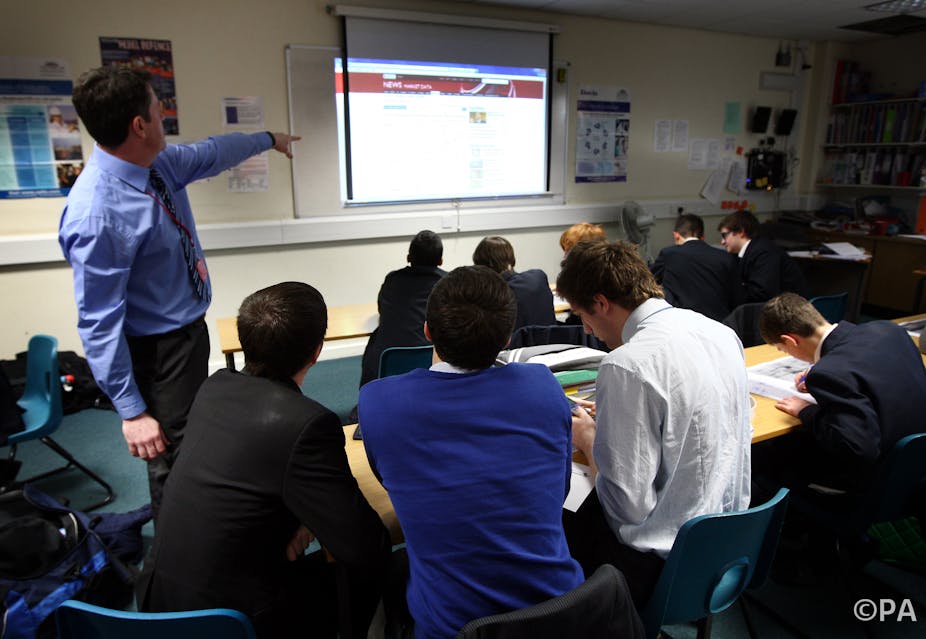If a school has a good governing body it has a better chance of being a good school. But any governing body will only be as good as its individual members, which puts a real premium on the recruitment of governors. Schools need to reach out to persuade local people as well as staff and parents to come forward and seek election to the governing body. But the recruitment of governors continues to be a challenge, especially for those governing bodies most in need of new faces – those in charge of struggling schools.
Research into school governing, which we carried out between 2008 and 2010, showed that schools varied in the number of willing and able potential governors who lived nearby. We called this pool of potential governors “governance capital”. The term of office is four years so recruiting governors is a continual challenge.
This governance capital was higher in schools in relatively advantaged and well-off areas, where pupils achieved well and got good exam results – and which were already well-regarded by their local communities or Ofsted.
Lack of suitable candidates
Five years later, we did another survey of school governors in England in the spring of 2014. Of the 7,000 governors who answered our survey, 66% said that recruiting governors was difficult.
The recent survey results showed that the problem continues to be more pronounced in schools serving disadvantaged areas, where 83% said it was difficult to recruit school governors, compared to schools in relatively advantaged areas, where 62% had trouble recruiting. It was also much harder to recruit at schools with below average levels of pupil attainment than in schools where children were doing above the average. And schools with an Ofsted grade of “requires improvement” or “satisfactory” found it harder to find governors than those with an “outstanding” Ofsted grade.
Where you need governors most, the pool of potential governors is smallest. But the governing bodies of schools that need governors the most appear to put less energy into recruitment. For example, 42% of governors at schools with a poor Ofsted grade said they put “in a lot of effort” to governor recruitment, compared to 51% of the top-rated schools.
We also asked if the difficulties in recruiting governors had any effect on the quality of their governing bodies. Overall, 37% of respondents reported that their governing body would be more effective if they could recruit more people of higher quality. This was higher in disadvantaged and struggling schools, supporting the idea that recruitment difficulties have a negative effect on the quality of school governing.
Here we see the genesis of a vicious cycle. Struggling schools that need good governors have fewer governors available to them and so their quality drops. One of the effects is that these governing bodies put less effort into recruitment, weakening the governing body even further and making it less able to ensure that the schools’ conduct is appropriate. So the school struggles even more and its “governance capital” is reduced further. The vicious cycle is perpetuated.
Raising governors’ profile
There are a number of ways to break the cycle. At the moment, school governing is currently too hidden from view – it needs to be more visible in society. Governors’ responsibility for the conduct of schools need to be more widely acknowledged – by parents, teachers, headteachers, the school’s wider community and even Ofsted and the Department for Education.
When governors and governing bodies make an excellent contribution, it should be acknowledged. For example, when an academy is given an outstanding Ofsted grade, the secretary of state should write to the governors to thank them.
The importance of governing bodies should be acknowledged by the establishment of a national database – starting with a database of chairs. At the moment, the Department of Education does not know – and has never known – who chairs each school or academy governing body. This means it doesn’t know who is responsible for proper conduct of governing bodies that are in turn responsible for the conduct of the nation’s schools. This is a quite astonishing state of affairs.
Local “non-education” organisations such as businesses need to be ready to support the involvement of their employees in school governing – not just as a contribution to society but because of the learning and development opportunities it brings.
And governor recruitment organisations such as SGOSS and the Inspiring Governors Initiative, which is a charity, need more support for the excellent work they do.
If implemented, these ideas may go some way to breaking the vicious cycle of governor recruitment and governing quality in struggling schools.

